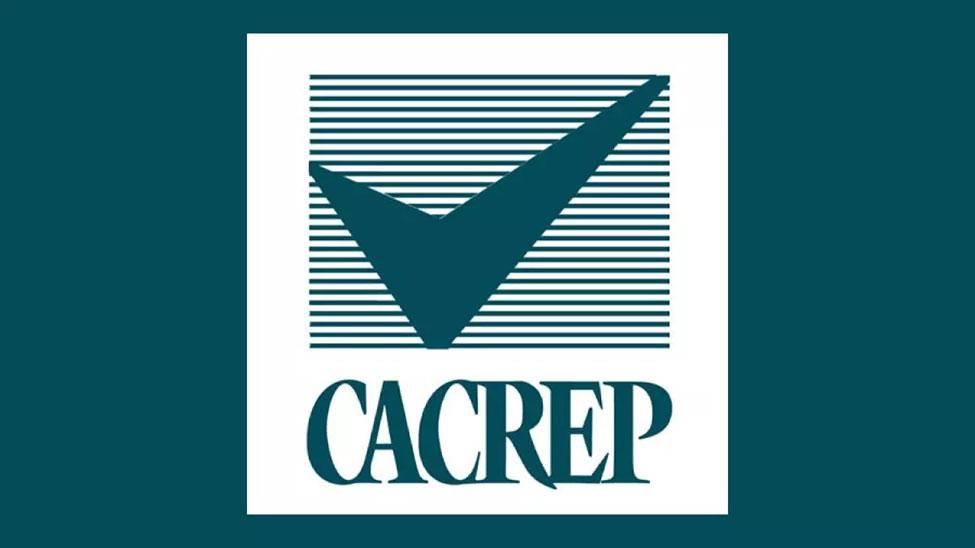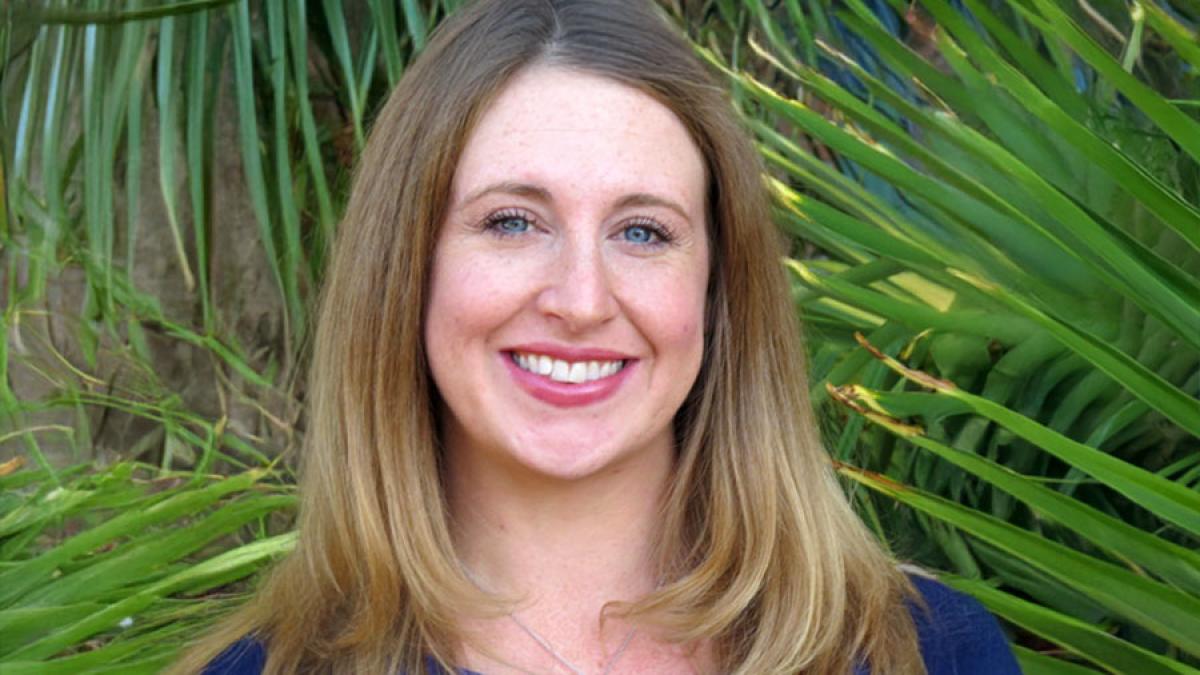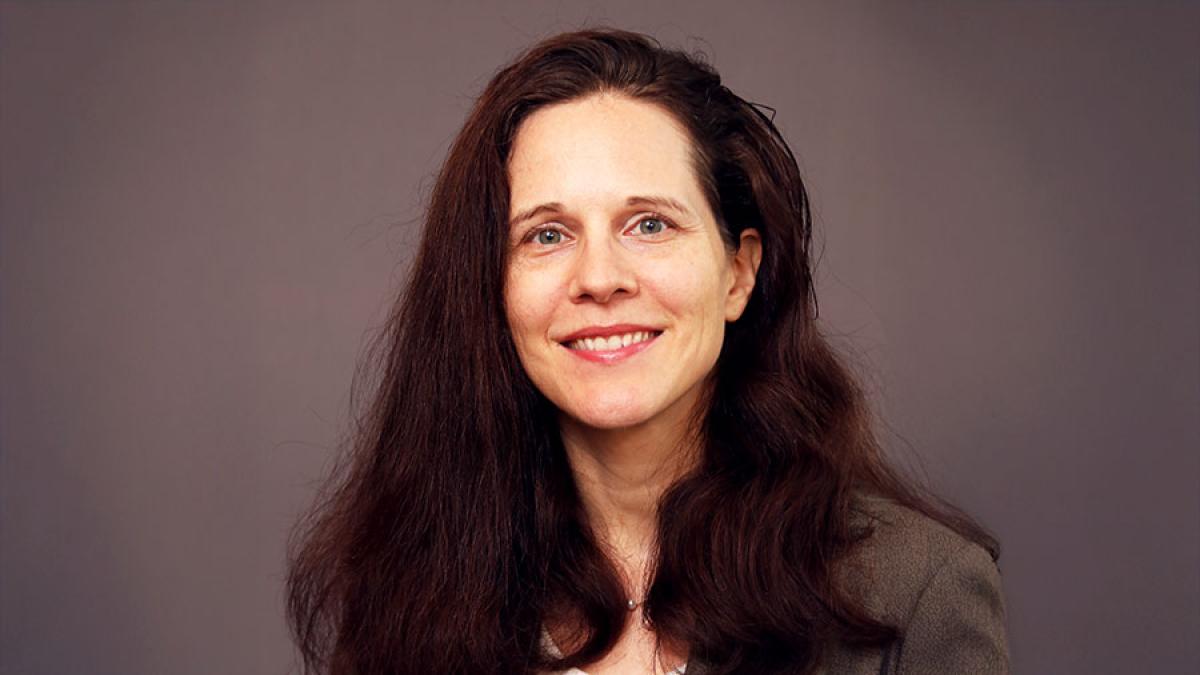
Mental Health Counseling, PhD
Among mental health counseling doctoral programs, Pace University’s PhD stands out for its combination of advanced clinical training, advocacy-focused curriculum, and connections to leading health clinics in New York City. Graduates are prepared for impactful careers in counseling, academia, and mental health policy.

Westchester
48 Credits
36 Months, Full-Time
In-Person
Fall
Yes
No
Shape the Future of Mental Health Counseling
Pace University’s PhD in Mental Health Counseling from the Dyson College of Arts and Sciences prepares you to lead in counseling, research, and advocacy. This unique doctorate degree equips you with advanced clinical skills, supervision techniques, and research expertise. You’ll engage in specialized coursework and hands-on fieldwork, with opportunities to develop expertise in areas such as grief counseling, substance abuse, and positive psychotherapy.

Accredited by the Council for Accreditation of Counseling and Related Educational Programs (CACREP), the program emphasizes cultural competence, ethical practice, and evidence-based approaches. With a base in the NYC metro area, the program gives you access to diverse clinical settings and the chance to work alongside leaders in mental health. A small, selective cohort ensures personalized attention and mentorship from faculty, peers, and alumni who support you in achieving your goals. Whether teaching, conducting research, or influencing policy, you’ll graduate ready to make a lasting impact in the field.
Note: “Per the CACREP 2024 standards, students entering doctoral programs on or after July 1, 2026, must complete a minimum of 60 semester hours beyond the entry-level degree (Standard 6.A.1).”
-
The primary objective of the PhD in Mental Health Counseling program is to train mental health counselors in advanced clinical and supervisory skills, prepare them to conduct research that will further the profession’s knowledge base, and foster the next generation of leaders who will be teachers and advocates for the mental health counseling profession across the country. It is the goal of the doctoral program to prepare mental health counseling professionals who: (a) demonstrate the ability to teach counseling students, (b) are effective clinicians that can recognize and address mental health needs, through counseling practice in a diverse multicultural society with marginalized populations (c) are prepared to conduct research and make significant contributions to the field (d) are active advocates who can assist both individuals and communities in overcoming barriers, and (e) are effective supervisors for counselors-in-training.
-
The doctoral program in Mental Health Counseling is developed to prepare professionals in five areas: counselor education, supervision, advocacy, research and advanced counseling practice. The objectives of this program have been developed specific to these areas. By completion of the program, doctoral students will:
- Demonstrate skills and knowledge in regards to the roles and responsibilities related to educating counselors. This includes the advancement of skills related to current teaching methods, curriculum development, and the delivery and evaluation of course objectives.
- Demonstrate skills and knowledge related to supervision, including theoretical framework and models, supervisee assessment, remediation, and gatekeeping functions.
- Design and conduct scholarly research that contributes new and interesting information to the counseling profession. This includes training in the formulation of questions as researchable hypotheses, formation of research designs, and the creation of publishable work.
- Demonstrate leadership and advocacy in various counseling organizations and conferences, as well as providing leadership regarding social justice issues.
- Demonstrate knowledge and skills in regards to clinical practice. This includes an understanding of theories relevant to counseling, the integration of various methods and modalities, and demonstration of ethical and cultural competence.
projected job growth from 2023–2033 (Source: U.S. Bureau of Labor Statistics)
mental health counselor is ranked #14 in the best social services jobs (Source: U.S. News & World Report, 2024)
of Dyson 2023 graduate degree graduates are employed, or continuing education or service (Source: Pace University Career Services)
Curriculum
Throughout the curriculum, you’ll receive intensive training focused on advanced clinical issues, counseling education, supervision, and research focused on the promotion of mental health and the counseling profession. Specializations include grief counseling, substance abuse counseling, and positive psychotherapy and counseling.
Graduates leave the program equipped with a solid foundation in counseling built upon a combination of coursework, fieldwork, seminars, and guided research.
Take Courses Like…
- MHC 731 Theories and Methods of Counselor Education
- MHC 732 Theories and Methods of Counselor Supervision
- MHC 831 Doctoral Dissertation Seminar I
Get Involved with Professional Associations
Students and faculty can interact, join, and present at regional, state, and national association conferences. This includes developing partnerships to conduct critical research on topics impacting individuals seeking mental health counseling services and beyond. Faculty have a longstanding and collaborative relationship with the following key organizations, allowing them to guide students in establishing professional connections during their time in the program.
- American Counseling Association (ACA)
- American Counseling Association-New York (ACA-NY)
- American Mental Health Counselors Association (AMHCA)
- New York Mental Health Counselors Association (NYMHCA)
- Association for Counselor Education and Supervision (ACES)
- North Atlantic Region Association for Counselor Education and Supervision (NARACES)
- New York Association for Counselor Education and Supervision (ACES)
Additional Program Highlights
A small and selective program—accepting approximately 10 students per academic year—means small classes, in which students are exposed to evidence-based counseling approaches for demographically and clinically diverse populations.
Students work closely with faculty to develop and carry out independent research projects culminating in a doctoral dissertation. These activities are designed to integrate counseling intervention and research skills training, preparing graduates for a variety of counseling, policy-based, advocacy, teaching, and research careers.
The Department of Psychology’s strong community of faculty, professionals, and alumni in the field of mental health equip doctoral students with an established network of support. Both faculty and alumni hold key leadership positions in the New York Mental Health Counselors Association (NYMHCA).
Each semester, the department offers a speaker series inviting leading researchers and professionals to talk about current and pertinent issues in the field.
Student Quote

—Ashley Davis ’22
Careers
With a doctoral degree in mental health counseling, you’ll have the highest level of academic qualification to make a difference in the counseling profession across a multitude of areas.
As a Pace student, you’ll have the opportunity to connect with our robust career services team to develop a career plan that best fits your goals.
Our graduates are prepared for jobs like:
- Advocacy
- Community mental health
- Mental health policymaking
- Private practice
- Research
- University teaching
Student Quote

—Paul Griffin, PhD, Department Chair
International Career Success Program
The INSPIRE Program (International Student Professional Readiness Program) is a badged internship and career success program exclusive to Pace. Year after year, this one-of-a-kind program empowers international students to achieve results in obtaining internships, jobs, and salary outcomes. Domestic students, we have an equivalent program for you called ASPIRE.
Where Pace Graduates are Employed
- Telus Health
- Valcre
- Next Level MHC PLLC
- Blue Lotus Mental Health Counseling PLLC
- Humantold
- Recovery Network of Programs, Inc.
Featured Faculty
Professor
Professor Legg’s research interests include dyadic relations marked by power differentials in high stakes situations such healthcare and education.
Professor
Professor Mancini research interests include potentially traumatic events, including interpersonal loss, military deployment, mass trauma, traumatic injury, and life-threatening illness.
Professor
Professor Westphal’s research interests include individual differences, psychosocial processes, and neurobiological mechanisms that explain variability in response to adversity.
PhD in Mental Health Counseling Core Faculty
Admission and Financial Aid
You're ready for a new level of success—whether it's advancing in your current field or launching a new career. Pace is with you every step of the way, providing a world-class education and the skills your industry will be looking for far into the future.
-
Admission requirements include:
- An earned master’s degree in mental health counseling (GPA of 3.6 or higher) with a curriculum equivalent to that of Pace University’s 60-credit graduate master of science program in mental health counseling.
- Have met one of the following permit/licensure requirements:
- Obtained or are eligible for a New York State limited permit in mental health counseling.
- Are licensed in mental health counseling in New York State.
- Are licensed or eligible to be licensed to practice mental health counseling in a state other than New York.
Applicants are required to submit the following information:
- A personal statement explaining to the Graduate Admission Committee why you would like to pursue a PhD in mental health counseling. The statement should include specific information pertaining to clinical and research experiences, current research interests and potential faculty mentors.
- A writing sample of prior graduate work, preferably one that demonstrates proficient ability to conduct scholarly literature reviews and research.
- A resume or outline describing at least the past five years of your employment history and any significant community, professional, or college extracurricular activities.
- Three letters of recommendation, two of which must be academic in nature, indicating your potential for achievement in doctoral study and potential to complete doctoral work and/or counseling skills. The letters of recommendation should address your intellectual ability, written and communication skills, maturity, initiative/independence, and creativity/ originality.
- All Official Transcripts: Transcripts from every accredited college or university attended (not just the degree granting institution) must be sent either to Pace University, directly from the academic institution electronically or by mail, or forwarded by the applicant in sealed envelopes from the academic institution.
(Note: The department may request candidates to provide additional documents to supplement the application during admission review process)
-
Per credit: $1,450 | Total cost of program: $68,540
*Tuition based on current year and subject to change. -
Fall Term
- November 1 (then space available basis until January 15)
-
Make an appointment to meet with you admission counselor.
-
Every admitted student is automatically considered for all available financial aid options, assessed based on both availability and individual need. Financial resources include:
- Merit-based Scholarships: Awards of up to $4,800, automatically considered during the application process.
- Graduate Assistantships: Opportunities for hands-on experience while earning financial support.
- Endowed Scholarships: Awards funded by generous donors to support student success.
- Federal Direct Unsubsidized Stafford Loan: A federal loan program with favorable terms.
- Graduate/Professional Direct PLUS Loan: For students who need additional funding.
- Work-Study Programs: Part-time work opportunities to help fund your education.
- Military Benefits: Includes the GI Bill®, the Yellow Ribbon Program, and Pace’s Veteran Tuition Scholarship.
For more information about affordability and the full range of financial aid options, visit Pace University Financial Aid.
GI Bill® is a registered trademark of the U.S. Department of Veterans Affairs (VA).
Accreditation
CACREP Annual Assessment Reports
PhD Programs in Mental Health Counseling-Field Placement Site Supervisor Training (PDF)
Please read and review the PowerPoint Training PhD Field Placement Practicum and Internship Handbook as part of our CACREP Accreditation Requirement.
PhD Program in Mental Health Counseling Field Placement Site Supervisor Training Verification (PDF)
Site supervisors are required to complete this form each semester that they sponsor PhD Practicum or Internship students as part of our CACREP Accreditation Requirement.
-
The following is Pace University’s Doctor of Philosophy (PhD) Program Objectives (POs) Assessment Report for the program's annual review. This plan includes input from the various stakeholders including: aggregate student assessment data that addresses student knowledge, skills, and professional dispositions; demographic and other characteristics of applicants, students, and graduates; and data from systematic follow-up studies of graduates, site supervisors, and employers of program graduates.
The assessment data compiled and analyzed is based on a five-point scale which is constituted as:
1. Ineffective
2. Somewhat Ineffective
3. Adequate
4. Effective
5. Very EffectiveProgram goals are baselined at a minimum standard of 80% to designate “meeting standard” or above. Our students continued to receive high quality academic instruction, strong clinical practicum experiences, and internship professional roles among five doctoral core areas, including:
- Counseling
- Supervision
- Teaching
- Research and scholarship
- Leadership and advocacy
98% of our stakeholders indicated that the program was Effective or Very Effective in meeting the program objectives. Again, 92% of our stakeholders indicated that the program was Adequate, Effective, or Very Effective in meeting the program objectives.
View complete Program Objectives (PO) Annual Assessment Report for 2023–2024 (PDF)
-
The following is Pace University’s Doctor of Philosophy (PhD) Program Objectives (POs) Assessment Report for the program's annual review. This plan includes input from the various stakeholders including: aggregate student assessment data that addresses student knowledge, skills, and professional dispositions; demographic and other characteristics of applicants, students, and graduates; and data from systematic follow-up studies of graduates, site supervisors, and employers of program graduates.
The assessment data compiled and analyzed is based on a five-point scale which is constituted as:
- Ineffective
- Somewhat Ineffective
- Adequate
- Effective
- Very Effective
Program goals are baselined at a minimum standard of 80% to designate “meeting standard” or above. Our students continued to receive high quality academic instruction, strong clinical practicum experiences, and internship professional roles among five doctoral core areas, including:
- Counseling
- Supervision
- Teaching
- Research and scholarship
- Leadership and advocacy.
99% of our stakeholders indicated that the program was Effective or Very Effective in meeting the program objectives. Again, 99% of our stakeholders indicated that the program was Adequate, Effective, or Very Effective in meeting the program objectives.
View complete Program Objectives (PO) Annual Assessment Report for 2022–2023 (PDF)
-
The following is Pace University’s Doctor of Philosophy (PhD) Program Objectives (POs) Assessment Report for the program's annual review. This plan includes input from the various stakeholders including: aggregate student assessment data that addresses student knowledge, skills, and professional dispositions; demographic and other characteristics of applicants, students, and graduates; and data from systematic follow-up studies of graduates, site supervisors, and employers of program graduates.
The assessment data compiled and analyzed is based on a five-point scale which is constituted as:
- Ineffective
- Somewhat Ineffective
- Adequate
- Effective
- Very Effective
Program goals are baselined at a minimum standard of 80% to designate “meeting standard” or above. Our students continued to receive high quality academic instruction, strong clinical practicum experiences, and internship professional roles among five doctoral core areas, including:
- Counseling
- Supervision
- Teaching
- Research and scholarship
- Leadership and advocacy.
99% of our stakeholders indicated that the program was Effective or Very Effective in meeting the program objectives. 100% of our stakeholders indicated that the program was Adequate, Effective, or Very Effective in meeting the program objectives.
View complete Program Objectives (PO) Annual Assessment Report for 2021–2022 (PDF)
-
The following is Pace University’s Doctor of Philosophy (PhD) Program Objectives (POs) Assessment Report for the program’s annual review. This plan includes input from the various stakeholders including: aggregate student assessment data that addresses student knowledge, skills, and professional dispositions; demographic and other characteristics of applicants, students, and graduates; and data from systematic follow-up studies of graduates, site supervisors, and employers of program graduates.
The assessment data compiled and analyzed is based on a five-point scale which is constituted as:
- Ineffective
- Somewhat Effective
- Adequate
- Effective
- Very Effective
Our previous program goals have been baselined at a minimum standard of 85% to designate “meeting standard” or above. As a result of the COVID-19 pandemic, while students continued to receive high quality academic instruction, strong clinical practicum experiences, and internship professional roles among five doctoral core areas, including: (1) counseling; (2) supervision; (3) teaching; (4) research and scholarship; (5) leadership and advocacy, all transitioned to remote platforms. The results of our annual Program Objectives assessment were impacted due to classes and field placements transitioning to remote platforms. This resulted in all of our constituencies adapting to multiple modalities, including academic instruction, clinical telehealth services and provisions, and remote supervision. Several of our students needed to secure new practicum placements and/or professional roles for internship as their original sites either fully paused services or could not support the requirements associated with CACREP standards and/or New York State Office of the Professions regulations. As such, we have adjusted our baseline minimum standard from 85% to 80% for this academic year to reflect these adjustments. Additionally, we have also included Adequate, Effective, and Very Effective in the five-point scale to calculate our aggregate outcome. While this baseline adjustment has been made, the program will continue to document, review and report any changes based on the 85% original baseline.
97% of our stakeholders indicated that the program was Adequate, Effective or Very Effective in meeting the program objectives.
View complete Program Objectives (PO) Annual Assessment Report for 2020–2021 (PDF)
-
The following is Pace University’s Doctor of Philosophy (PhD) Program Objectives (POs) Assessment Report for the program’s annual review. This plan includes input from the various stakeholders including: aggregate student assessment data that addresses student knowledge, skills, and professional dispositions; demographic and other characteristics of applicants, students, and graduates; and data from systematic follow-up studies of graduates, site supervisors, and employers of program graduates.
The assessment data compiled and analyzed is based on a five point scale which is constituted as:
- Ineffective
- Somewhat Effective
- Adequate
- Effective
- Very Effective.
Program goals are baselined at a minimum standard of 85% to designate “meeting standard” or above.
97% of our stakeholders indicated that the program was Effective or Very Effective in meeting the program objectives.
View complete Program Objectives (PO) Annual Assessment Report for 2019–2020 (PDF)
-
Part I: Narrative
During the 2018–2019 academic year, the faculty and staff of the Doctor of Philosophy programs in Mental Health Counseling at Pace University conducted an annual review of the program. The program’s core objectives remain focused on fostering student development in advanced clinical and supervisory skills, training them to become proficient researchers that will advance knowledge on issues pertaining to mental health and counseling, and to promote future leaders of the profession who will serve as both educators and advocates. Past and current students’ dissertations have examined key issues in clinical mental health counseling and counselor education. To assist them in their studies, graduate assistantships and adjunct teaching assignments continue to be offered to doctoral students in the department. Based on the feedback that we received during the CACREP Site Visit in May 2018, the changes outlined below were implemented:
- MHC 707: Qualitative Methods in Counseling Research (4 credits)
- MHC 710: Doctoral Practicum in Mental Health Counseling (4 credits)
- MHC 726: Doctoral Internship II in Mental Health Counseling (0 credits)
- MHC 734: Advanced Theory & Practice of Counseling (4 credits)
Additionally, the department modified the following course curriculum to include Leadership and Advocacy (CACREP Section 6 Standard B 5.d.-Accreditation):
MHC 733: Leadership & Advocacy in Mental Health CounselingFurther, the MHC 710: Doctoral Practicum in Mental Health Counseling course at the master’s level is now a significant preparation for our program. Michael Tursi, Ph.D. (from the counselor education doctoral program at the University of Rochester) continues to advance our practicum and internship courses, including MHC 725: Doctoral Internship I in Mental Health Counseling and MHC 726: Doctoral Internship II in Mental Health Counseling. Both courses are significantly structured and students’ progress is documented throughout.
Part II: Graduates and Pass, Completion, and Job Placement Rates
- Number of Graduates: 6
- Program Completion Rate: 100% for the 2018–2019 academic year
- Estimate of Job Placement Rates: Many of our students enter our program either as licensed and/or certified counselors, limited permit holders, and/or apply for permits in mental health counseling while enrolled. The graduates who complete their doctorate in May 2019, are employed either full time or part in mental health counseling settings, school setting, and/or teach as adjuncts in counseling or related areas.
View complete Program Objectives (PO) Annual Assessment Report for 2018–2019 (PDF)
Contact Us
Admission Contact
Office of Graduate Admission
Phone: (212) 346-1531
Email: graduateadmission@pace.edu
Departmental Contact
Vanessa Ramkissoon
Department Program Manager
Phone: (914) 773-3791
Email: phdmhc@pace.edu


